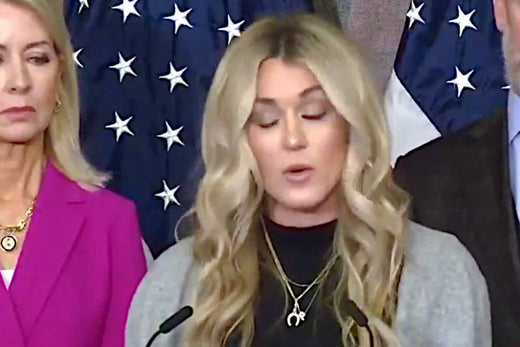
Riley Gaines, nageuse accomplie et défenseure du sport féminin, s'est imposée comme une fervente opposante aux politiques autorisant les athlètes transgenres à concourir dans les catégories sportives féminines. Sa position a suscité un débat houleux sur l'équité, l'inclusion et l'équilibre entre la protection des athlètes féminines et la reconnaissance des droits des personnes transgenres. Dans cet article, nous explorons les principaux points de discorde, les arguments des deux camps et les implications sociétales plus larges.
Qui est Riley Gaines ?
Riley Gaines est une ancienne nageuse universitaire de l'Université du Kentucky, connue pour ses succès en compétitions NCAA. Gaines s'est fait connaître lors de la controverse entourant la nageuse transgenre Lia Thomas, qui a remporté un titre national en 2022. Après avoir terminé ex-aequo avec Thomas dans une autre course, Gaines a commencé à exprimer publiquement ses préoccupations concernant l'équité dans le sport féminin.
La question centrale : l'équité de la concurrence
Le débat tourne autour de l'inclusion des femmes transgenres – personnes assignées de sexe masculin à la naissance mais s'identifiant comme femmes – dans les disciplines sportives féminines. Les partisans de l'inclusion affirment que l'exclusion des athlètes transgenres est discriminatoire et contraire aux principes des droits humains. Cependant, les critiques affirment que les différences biologiques confèrent aux femmes transgenres des avantages injustes.
Débat sur les différences biologiques
Des études suggèrent que les femmes transgenres qui suivent une thérapie hormonale conservent certains avantages physiques dus à la puberté masculine, comme une plus grande masse musculaire et une plus grande densité osseuse. 2 Les opposants à l'inclusion des transgenres, comme Gaines, soutiennent que ces facteurs biologiques compromettent l'intégrité du sport féminin.
À l’inverse, les défenseurs soulignent que de nombreux athlètes transgenres subissent une thérapie hormonale rigoureuse, ce qui peut réduire ces avantages et rapprocher leurs niveaux de performance de ceux des athlètes cisgenres .
Le paysage juridique et politique
Ce problème a attiré l'attention des législateurs américains. Au moins 20 États ont adopté ou introduit des lois interdisant aux athlètes transgenres de concourir dans des équipes sportives féminines. 4 Ces lois visent à garantir l'équité des compétitions, selon leurs partisans. Cependant, leurs opposants, notamment des organisations de défense des droits civiques, affirment que ces mesures sont discriminatoires à l'égard des jeunes transgenres et peuvent nuire à leur santé mentale.
L’administration Biden a proposé des amendements aux réglementations du Titre IX pour garantir que les droits des étudiants transgenres soient protégés tout en reconnaissant la nécessité d’ une concurrence loyale.
Le plaidoyer de Gaines et la réponse du public
Gaines a témoigné devant des commissions du Congrès et pris la parole lors d'événements, soulignant ce qu'elle perçoit comme une érosion de l'équité dans le sport féminin. Lors d'un témoignage très médiatisé devant le Congrès, Gaines a déclaré : « Il s'agit de garantir l'équité et la sécurité des filles dans le sport. » 6
Sa position a polarisé l’opinion publique :
- Supporters : Félicitons-la pour avoir pris la parole et défendu les droits des athlètes féminines.
- Les critiques : l’accusent de perpétuer des récits préjudiciables à l’égard des personnes transgenres .
Voix de l'autre côté
De nombreux défenseurs de l'inclusion des personnes transgenres soulignent l'importance de reconnaître l'identité de genre des individus et de créer des environnements où tous les athlètes se sentent en sécurité et acceptés. Ils soutiennent que l'exclusion des filles transgenres du sport limite non seulement leurs opportunités, mais exacerbe également la stigmatisation et les problèmes de santé mentale.
Trouver un terrain d'entente
Certains experts ont proposé de créer des catégories ouvertes ou des divisions supplémentaires pour les athlètes transgenres. Cependant, ces propositions ont été critiquées, leurs opposants affirmant qu'elles pourraient accentuer la ségrégation et la stigmatisation des athlètes au lieu de favoriser l'inclusion.
Implications sociétales plus larges
Le débat sur les athlètes transgenres reflète des discussions sociétales plus larges sur l'identité de genre, l'inclusion et l'égalité. Trouver un équilibre entre équité et inclusion demeure un défi complexe qui exige une réflexion approfondie et un dialogue permanent.
Conclusion
Le plaidoyer de Riley Gaines a permis de relancer l'attention sur cette problématique complexe. Alors que le débat se poursuit, trouver une solution respectueuse de l'équité et de l'inclusion sera essentiel pour façonner l'avenir du sport et garantir des espaces où tous les athlètes peuvent s'épanouir.
Références :
- "Lia Thomas devient championne NCAA de natation féminine", CNN.
- Harper, J., et al. « Les femmes transgenres dans le sport d'élite », Journal of Sports Medicine .
- Handelsman, DJ, « Effets de l'hormonothérapie sur les athlètes transgenres », Sports Science Review .
- « Un nombre record d'États interdisent les athlètes transgenres », NPR.
- « L'administration Biden propose des modifications au Titre IX », Département de l'Éducation des États-Unis.
- « Riley Gaines témoigne devant le Congrès », Fox News.
- « Les défenseurs des personnes transgenres critiquent la rhétorique anti-trans », NBC News.
- « La vie des personnes transgenres », Human Rights Campaign.
- « Catégories ouvertes proposées pour les athlètes trans », The Guardian.
Cet article vous a-t-il été utile ? S'il vous plaît dites-nous ce que vous avez aimé ou n'avez pas aimé dans les commentaires ci-dessous.
About the Author: Alex Assoune
Contre Quoi Nous Luttons
Les groupes multinationaux surproduisent des produits bon marché dans les pays les plus pauvres.
Des usines de production où les conditions s’apparentent à celles d’ateliers clandestins et qui sous-payent les travailleurs.
Des conglomérats médiatiques faisant la promotion de produits non éthiques et non durables.
De mauvais acteurs encourageant la surconsommation par un comportement inconscient.
- - - -
Heureusement, nous avons nos supporters, dont vous.
Panaprium est financé par des lecteurs comme vous qui souhaitent nous rejoindre dans notre mission visant à rendre le monde entièrement respectueux de l'environnement.
Si vous le pouvez, veuillez nous soutenir sur une base mensuelle. Cela prend moins d'une minute et vous aurez un impact important chaque mois. Merci.































0 commentaires